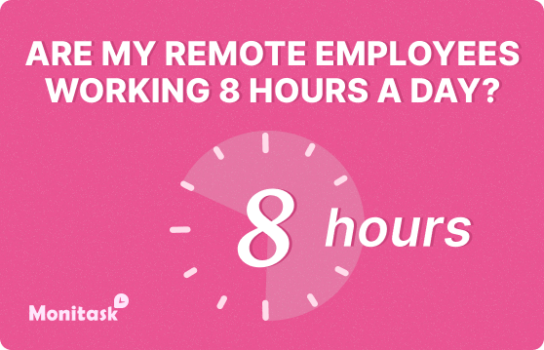Soft Skills
Understanding Soft Skills in the Workplace
In today's rapidly evolving professional landscape, the importance of soft skills cannot be overstated. While technical expertise and hard skills are undoubtedly crucial, it's often the intangible, interpersonal abilities that set exceptional employees apart. Soft skills, also known as people skills or interpersonal skills, encompass a wide range of attributes that enable individuals to navigate the complex social dynamics of the modern workplace effectively.
Soft skills are not typically taught in traditional educational settings, yet they play a pivotal role in career success. These skills are often more challenging to quantify and assess than hard skills, but their impact on an individual's performance and an organization's overall success is profound. From communication and teamwork to adaptability and emotional intelligence, soft skills form the foundation of a well-rounded professional.
The Evolution of Soft Skills in the Workplace
The concept of soft skills has evolved significantly over the past few decades. In the past, technical prowess and specific job-related abilities were often considered sufficient for career advancement. However, as workplaces become increasingly collaborative and customer-centric, the demand for well-developed soft skills has surged.
The rise of globalization and digital communication has further emphasized the need for strong interpersonal abilities. With teams often spread across different time zones and cultures, the ability to communicate effectively, empathize with diverse perspectives, and adapt to changing circumstances has become paramount.
Key Soft Skills for Professional Success
While the list of valuable soft skills is extensive, certain abilities consistently rank among the most sought-after by employers across industries. Let's explore some of these critical soft skills in detail:
1. Communication
Effective communication is perhaps the most fundamental soft skill. It encompasses the ability to articulate ideas clearly, listen actively, and convey information across various mediums. Strong communicators can adapt their style to different audiences, whether they're presenting to executives, collaborating with colleagues, or explaining complex concepts to clients.
In the digital age, written communication has gained even more significance. The ability to craft clear, concise emails, reports, and presentations is invaluable. Moreover, non-verbal communication, including body language and tone of voice, plays a crucial role in face-to-face interactions and video conferences.
2. Emotional Intelligence
Emotional intelligence (EI) refers to the capacity to recognize, understand, and manage one's own emotions while also being attuned to the emotions of others. This skill is particularly important for leaders and managers, as it enables them to build strong relationships, resolve conflicts, and create a positive work environment.
Individuals with high emotional intelligence are often adept at:
- Self-awareness: Understanding their own strengths, weaknesses, and emotional triggers
- Self-regulation: Managing their emotions and impulses effectively
- Empathy: Recognizing and responding to the feelings and needs of others
- Social skills: Building and maintaining relationships, influencing others, and fostering collaboration
3. Adaptability and Flexibility
In today's fast-paced business world, the ability to adapt to change is crucial. Adaptable employees can thrive in dynamic environments, embrace new technologies, and adjust their approach when faced with unexpected challenges. This skill is particularly valuable during times of organizational change, such as mergers, restructurings, or shifts in company strategy.
Flexibility also extends to one's willingness to take on new responsibilities and learn new skills. Employees who demonstrate a growth mindset and eagerness to expand their capabilities are often viewed as valuable assets to their organizations.
4. Teamwork and Collaboration
The ability to work effectively in a team setting is essential in most modern workplaces. Collaborative skills involve more than just getting along with colleagues; they encompass the capacity to contribute ideas, respect diverse viewpoints, and work towards common goals.
Effective team players are often characterized by:
- Active participation in group discussions and projects
- Willingness to share knowledge and resources
- Ability to give and receive constructive feedback
- Respect for team dynamics and individual differences
- Commitment to collective success over personal recognition
5. Problem-Solving and Critical Thinking
The ability to analyze complex situations, identify potential solutions, and make sound decisions is highly valued across all industries. Critical thinkers can break down problems into manageable components, evaluate various options, and implement effective solutions.
Problem-solving skills also involve creativity and innovation. Employees who can think outside the box and generate novel ideas are often instrumental in driving organizational growth and improvement.
6. Time Management and Organization
In an era of constant distractions and competing priorities, the ability to manage time effectively and stay organized is crucial. This skill involves setting realistic goals, prioritizing tasks, and maintaining a productive workflow.
Strong time management skills enable professionals to:
- Meet deadlines consistently
- Balance multiple projects and responsibilities
- Minimize stress and avoid burnout
- Improve overall productivity and efficiency
7. Leadership
Leadership skills are not only relevant for those in managerial positions; they are valuable for employees at all levels. Leadership encompasses the ability to motivate and inspire others, take initiative, and guide teams towards shared objectives.
Key aspects of leadership include:
- Vision and strategic thinking
- Ability to delegate tasks effectively
- Mentoring and developing others
- Decision-making under pressure
- Accountability and integrity
The Impact of Soft Skills on Career Advancement
While technical skills may secure an initial job offer, it's often soft skills that propel individuals up the career ladder. Employees with strong interpersonal abilities are more likely to be considered for leadership roles, as they can effectively manage teams, build relationships with clients, and navigate complex organizational dynamics.
Moreover, soft skills contribute significantly to job satisfaction and employee retention. Professionals who can communicate effectively, collaborate with diverse teams, and adapt to changing circumstances are more likely to thrive in their roles and remain committed to their organizations long-term.
Developing and Improving Soft Skills
Unlike hard skills, which can often be learned through formal education or training programs, soft skills are typically developed through experience and conscious effort. However, there are several strategies individuals can employ to enhance their interpersonal abilities:
1. Self-Assessment and Reflection
The first step in improving soft skills is to identify areas for growth. This can be done through self-reflection, seeking feedback from colleagues and supervisors, or utilizing personality assessments and emotional intelligence tests.
2. Continuous Learning
Engage in ongoing professional development opportunities, such as workshops, seminars, or online courses focused on specific soft skills. Many organizations offer internal training programs designed to enhance employees' interpersonal abilities.
3. Practice and Application
Actively seek opportunities to apply and refine soft skills in real-world situations. This might involve volunteering for cross-functional projects, participating in team-building activities, or taking on leadership roles in professional associations.
4. Mentorship and Coaching
Working with a mentor or coach can provide valuable insights and personalized guidance for developing soft skills. Many experienced professionals are willing to share their knowledge and offer advice to help others grow.
5. Mindfulness and Self-Awareness
Practicing mindfulness techniques can enhance emotional intelligence and self-awareness. This might include meditation, journaling, or simply taking time for regular self-reflection.
Measuring and Assessing Soft Skills
One of the challenges associated with soft skills is the difficulty in quantifying and measuring them objectively. However, organizations are increasingly recognizing the need to assess these abilities during the hiring process and in performance evaluations.
Some methods for evaluating soft skills include:
- Behavioral interviews: Asking candidates to provide specific examples of how they've demonstrated particular soft skills in past experiences
- Role-playing exercises: Simulating workplace scenarios to observe how individuals handle various interpersonal situations
- 360-degree feedback: Gathering input from colleagues, supervisors, and subordinates to gain a comprehensive view of an employee's soft skills
- Self-assessment tools: Utilizing standardized questionnaires or assessments designed to measure specific interpersonal abilities
The Future of Soft Skills in the Workplace
As automation and artificial intelligence continue to reshape the job market, the importance of soft skills is likely to grow even further. While machines can perform many technical tasks with increasing efficiency, uniquely human abilities such as empathy, creativity, and adaptability will become even more valuable.
Moreover, the trend towards remote and hybrid work arrangements has highlighted the critical role of soft skills in maintaining team cohesion and productivity in virtual environments. The ability to communicate effectively across digital platforms, manage time independently, and collaborate asynchronously will be essential for success in the evolving workplace landscape.
Conclusion
Soft skills are the invisible threads that weave together successful careers and thriving organizations. While technical expertise will always be important, it's the combination of hard and soft skills that truly sets exceptional professionals apart. By recognizing the value of interpersonal abilities and actively working to develop them, individuals can enhance their career prospects, improve workplace relationships, and contribute more effectively to their organizations' success.
As the business world continues to evolve, the demand for well-rounded professionals with strong soft skills will only increase. By investing in the development of these crucial abilities, both individuals and organizations can position themselves for long-term success in an increasingly competitive and dynamic global economy.


